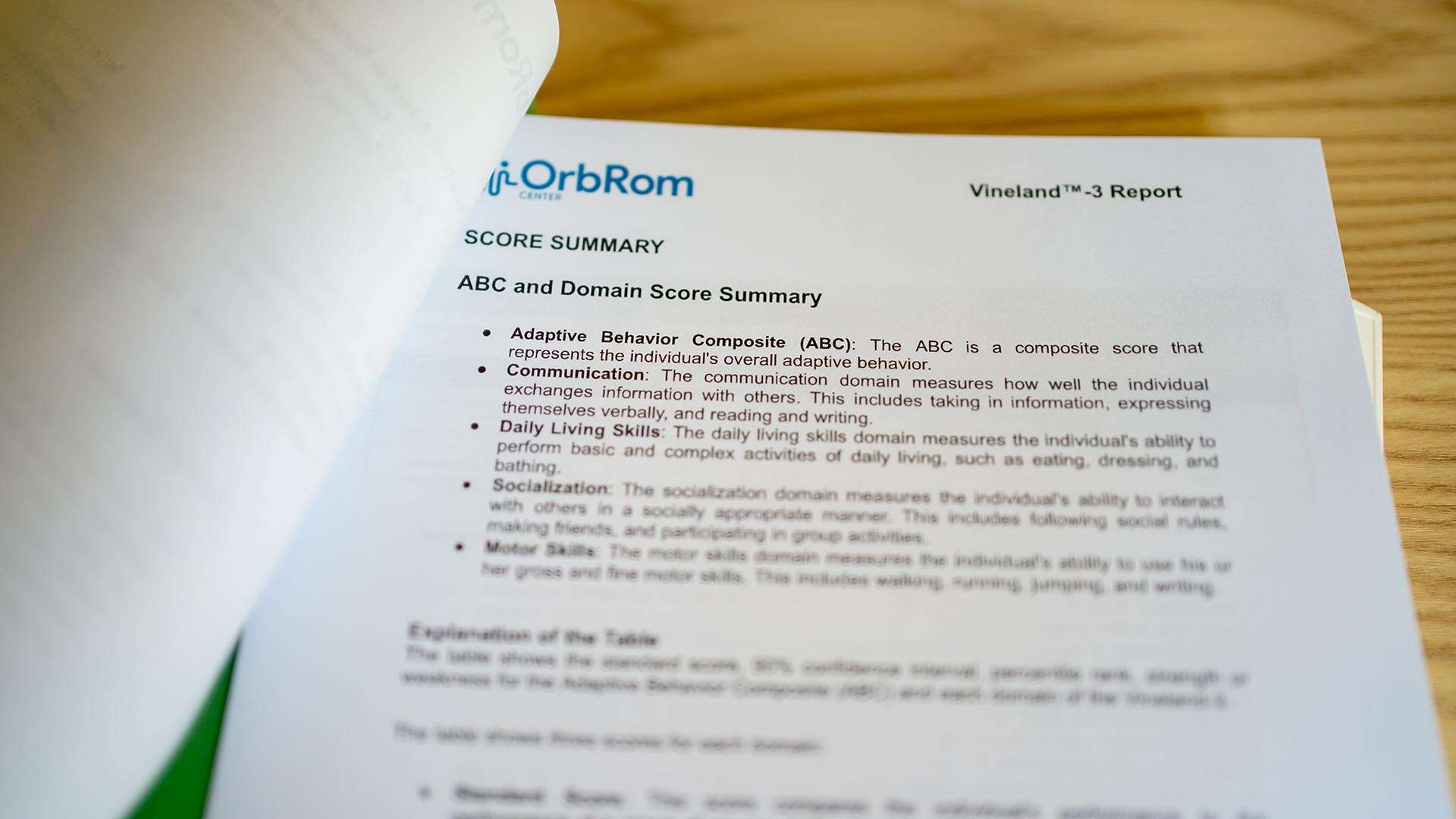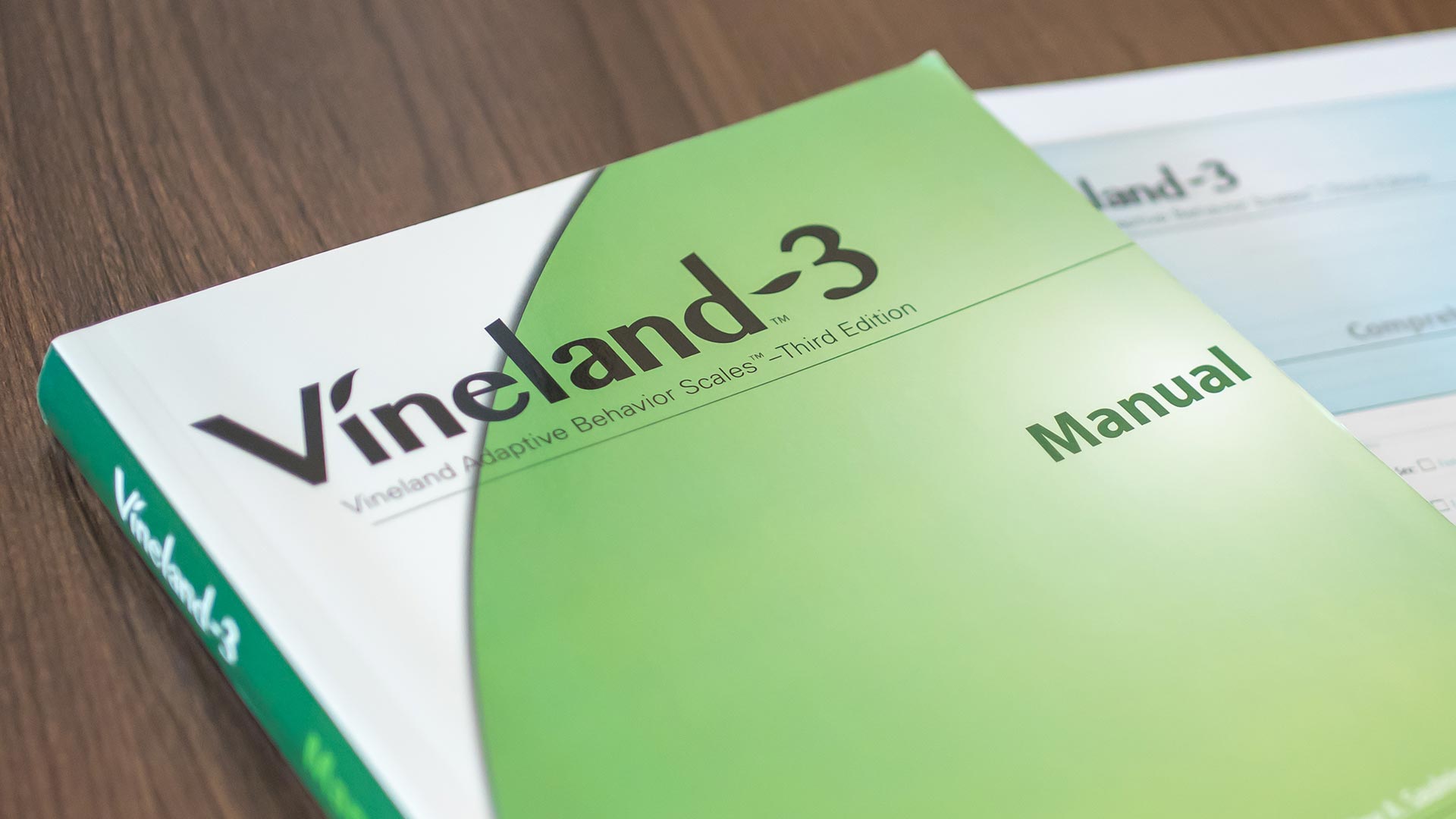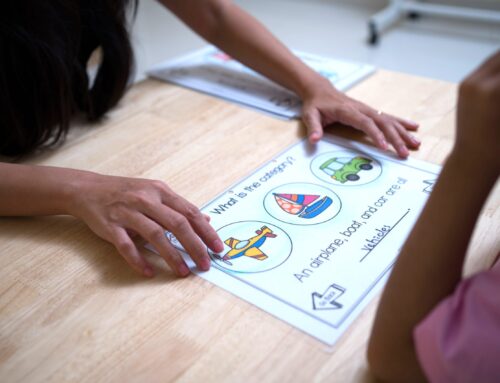OrbRom Center offers the Vineland-3 assessment, a standardized tool for measuring adaptive behaviors in children and adults. This blog aims to provide an objective overview of the Vineland-3, exploring its purpose, benefits, and how it’s conducted at OrbRom Center.
What is the Vineland-3?
The Vineland-3, or Vineland Adaptive Behavior Scales (VABS), is a comprehensive assessment tool that evaluates an individual’s ability to perform daily living tasks across four domains:
- Communication: This domain assesses expressive and receptive language skills, such as understanding spoken instructions and expressing oneself clearly.
- Daily Living Skills: This domain covers self-care skills like dressing, bathing, and toileting, as well as domestic tasks like cooking and cleaning.
- Socialization: This domain evaluates social interaction skills, including making friends, following social rules, and managing emotions.
- Motor Skills: This domain assesses fine and gross motor skills, such as handwriting, coordination, and mobility.
Benefits of the Vineland-3 Assessment:
The Vineland-3 offers several benefits for both individuals and professionals:
- Identifying developmental strengths and weaknesses: The assessment provides a detailed picture of an individual’s adaptive skills across various domains, highlighting areas where they excel and areas that may require additional support.
- Diagnosis and eligibility determination: The Vineland-3 can be used to support the diagnosis of developmental disabilities and intellectual disabilities, as well as determine eligibility for educational and support services.
- Developing individualized intervention plans: The assessment results can inform the development of targeted interventions and therapies tailored to address specific needs and goals.
- Monitoring progress: The Vineland-3 can be used to track progress over time, allowing professionals and families to evaluate the effectiveness of interventions and adjust them as needed.

The Vineland-3 at OrbRom Center:
OrbRom Center, a leading provider of services for children with special needs in Phnom Penh, Cambodia, utilizes the Vineland-3 assessment as part of its comprehensive evaluation process. The assessment is conducted by qualified professionals who follow standardized procedures to ensure accurate and reliable results.
Here’s a brief overview of what to expect during the Vineland-3 assessment at OrbRom Center:
- Interview: A trained clinician will interview parents, caregivers, or teachers who are familiar with the individual being assessed. The interview gathers information about the individual’s daily routines, skills, and challenges in each domain.
- Standardized activities: In some cases, the clinician may conduct brief, standardized activities with the individual to further assess specific skills.
- Scoring and interpretation: Following the assessment, the clinician will score the results and provide a detailed report that summarizes the individual’s strengths and weaknesses in each domain. The report also includes recommendations for interventions and support services.
The Vineland-3 assessment is a valuable tool for understanding an individual’s developmental journey and providing them with the necessary support to thrive. If you’re concerned about a child’s development or seeking evidence-based guidance, consider contacting OrbRom Center to learn more about the Vineland-3 assessment and their other services.




Leave A Comment